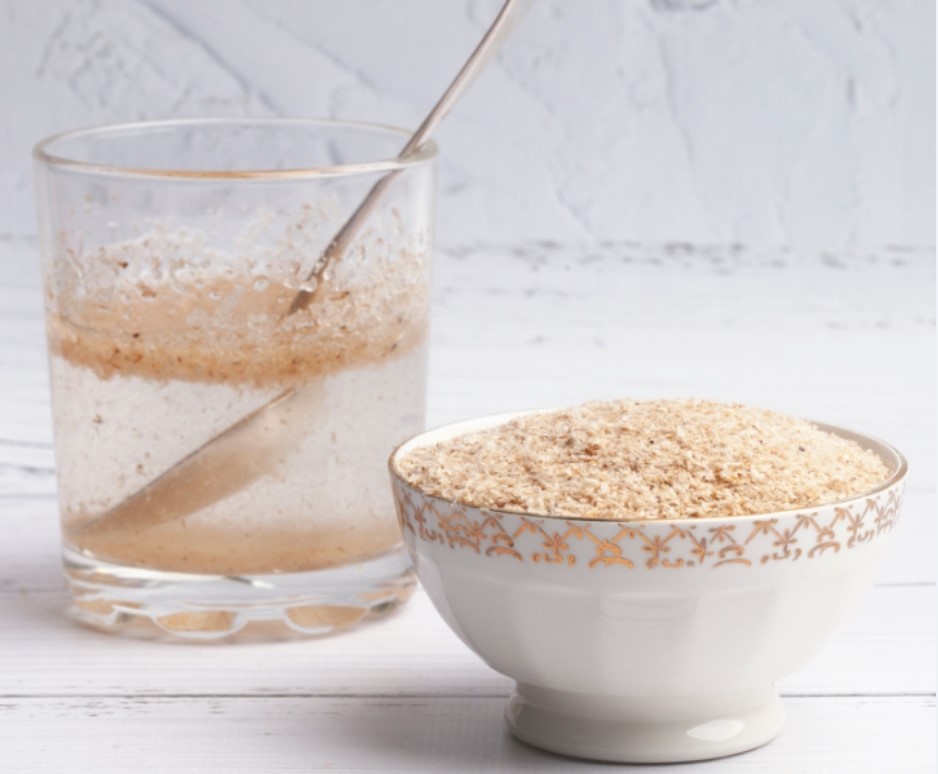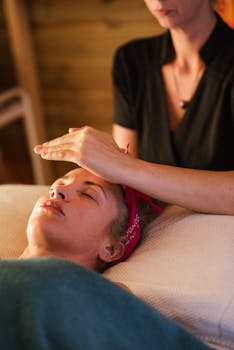Understanding Non-Prescription Drugs for Anxiety
The search for non-prescription anxiety medications leads to a surprising discovery: these medications don’t currently exist in the traditional over-the-counter market. This absence stems from the complex nature of anxiety disorders and their treatment requirements.
Key Factors Behind Limited Availability:
- Risk of dependency and abuse
- Potential severe side effects
- Complex drug interactions
- Need for professional monitoring
- Varying individual responses to treatment
The closest alternatives you’ll find at your local pharmacy are supplements and herbal remedies. These products might claim to promote relaxation or reduce stress, but they’re not classified as anxiety medications by regulatory authorities. Even natural supplements can interact with prescription medications and cause unexpected side effects. Always consult your healthcare provider before starting any new treatment regimen.
Your anxiety management journey requires understanding that the lack of non-prescription options isn’t an oversight – it’s a protective measure. The complexity of anxiety disorders demands careful evaluation and monitoring that can’t be achieved through self-medication.
The absence of over-the-counter anxiety medications reflects the medical community’s commitment to patient safety. This reality pushes many people toward exploring alternative approaches or seeking professional help for proper anxiety treatment.
While exploring women’s health and its intricate connection with mental well-being, it’s crucial to consider that such complexities may also influence one’s anxiety levels. Similarly, adopting healthy snacks into your diet could potentially have a positive impact on your overall health, including mental health.
In this quest for holistic wellness, it’s essential to stay informed about the latest breakthroughs in various fields such as skincare technology or even explore unique health trends like butterfly milk, which is known for its numerous health benefits including antioxidants and eye health.
Exploring Prescription Medications for Anxiety
Prescription medications remain the primary medical intervention for managing severe anxiety disorders. These medications work by targeting specific brain chemicals linked to anxiety symptoms.
Common Prescription Medications for Anxiety:
1. Benzodiazepines
- Fast-acting anxiety relief
- Examples include Xanax, Valium, Ativan
- Best suited for short-term use
- Risk of physical dependence
2. SSRIs (Selective Serotonin Reuptake Inhibitors)
- Long-term anxiety management
- Popular options: Prozac, Zoloft, Lexapro
- Takes 4-6 weeks for full effect
- Lower risk of dependence
3. SNRIs (Serotonin-Norepinephrine Reuptake Inhibitors)
- Dual-action antidepressants
- Examples: Effexor, Cymbalta
- Effective for anxiety with depression
- Similar timeline to SSRIs
4. Ketamine
- An emerging treatment option for severe anxiety
- Known for its rapid effects, often seen in just a few hours after administration
- Requires careful medical supervision due to its potential side effects and risk of dependence
Medical supervision is essential when taking these medications. Your doctor will monitor:
- Potential side effects
- Drug interactions
- Dosage adjustments
- Withdrawal symptoms
- Treatment effectiveness
The prescription process involves regular check-ups and careful documentation of your symptoms. Your doctor might start with a low dose and gradually increase it based on your response. This approach helps minimize side effects while finding the most effective treatment level.
Physical dependence can develop with certain anxiety medications, particularly benzodiazepines. Stopping these medications requires a structured tapering plan under medical guidance to prevent withdrawal symptoms.
While these prescription medications play a crucial role in managing anxiety, it’s also important to consider other aspects of health such as diet and weight management. Building a balanced diet is essential for optimal health and can complement the effects of medication.
In some cases, individuals may also struggle with weight management as a side effect of certain medications. Understanding the differences between weight management medications like Phentermine and Ozempic, or exploring why one might still feel full hours after lunch on Ozempic could provide valuable insights into managing these issues. Additionally, comparing other diabetes care options such as Jardiance vs. Ozempic may also be beneficial for those dealing with both anxiety and diabetes.
Examining Non-Prescription Alternatives for Managing Anxiety Symptoms
Several non-prescription alternatives have shown promise in managing anxiety symptoms. These natural options can provide relief without the need for a prescription, though their effectiveness varies from person to person.
Magnesium Supplements
- Studies suggest magnesium deficiency links to increased anxiety levels
- Magnesium helps regulate neurotransmitters that calm the nervous system
- Available in different forms: citrate, glycinate, and oxide
- Recommended daily dosage varies between 310-420mg for adults
Popular Herbal Remedies
Kava
- Traditional Pacific Island medicine known for its calming effects
- Contains active compounds called kavalactones
- Research indicates potential anxiety-reducing properties
- Best used short-term under healthcare provider guidance
Passionflower
- Mild sedative properties help reduce anxiety symptoms
- Available in tea, tincture, or capsule form
- Studies show effectiveness for generalized anxiety
- Often combined with other calming herbs for enhanced effects
Valerian Root
- Known for its sleep-promoting and anxiety-reducing properties
- Takes effect within 2-3 weeks of regular use
- Available in various forms including capsules and tea
- May help reduce physical symptoms of anxiety
These non-prescription alternatives work best when integrated into a comprehensive anxiety management plan. You should consult with a healthcare provider before starting any supplement regimen, as these substances can interact with medications or have contraindications for certain medical conditions.
Additionally, it’s essential to consider how menopause-friendly nutrition could also play a role in managing anxiety symptoms during this transitional phase. Furthermore, if you’re pregnant and considering using medications like Ozempic for other health issues, it’s crucial to understand the safety and risks associated with it.
Implementing Natural Methods to Reduce Anxiety Levels
Exercise: A Natural Mood Elevator
Exercise is a powerful tool in managing anxiety symptoms. Regular exercise triggers the release of endorphins – natural mood elevators that help reduce stress and anxiety. Here’s how you can incorporate exercise into your anxiety management routine:
Effective Exercise Options for Anxiety Relief:
- 30-minute brisk walks
- Yoga sessions
- Swimming
- Strength training
- High-intensity interval training (HIIT)
Lifestyle Choices: Small Changes, Big Impact
Your lifestyle choices play a crucial role in anxiety management. Simple adjustments can create significant improvements:
Key Lifestyle Changes:
- Establish consistent sleep patterns
- Maintain a balanced diet with plant-based options
- Limit caffeine and alcohol intake
- Practice regular meditation
- Create daily routines
Proper hydration is also essential for overall health, including mental well-being. It plays a vital role in cognitive performance and stress management. Here are some tips on [how proper hydration impacts your overall health and wellness](https://wellnesshq.net/nutrition-diet/how-proper-hydration-impacts-your-overall-health-and-wellness).
Psychotherapy: Structured Support for Anxiety Management
Psychotherapy provides structured support in managing anxiety. Different therapeutic approaches offer unique benefits:
Popular Psychotherapy Methods:
- Cognitive Behavioral Therapy (CBT)
- Exposure Therapy
- Mindfulness-Based Stress Reduction
- Group Therapy
- Art Therapy
Research shows combining these natural methods creates a comprehensive approach to anxiety management. A study in the Journal of Clinical Psychology found that participants who combined regular exercise with psychotherapy experienced a 65% reduction in anxiety symptoms compared to those using single methods alone.
These natural approaches work best when tailored to your specific needs and lifestyle. Start with small changes and gradually build up to more intensive activities. Track your progress through anxiety journals or mobile apps to identify which methods work best for you.
In addition, maintaining a balanced diet is crucial. This includes understanding the [impact of intermittent fasting on metabolic health](https://wellnesshq.net/nutrition-diet/new-research-reveals-the-impact-of-intermittent-fasting-on-metabolic-health), which can influence weight management and overall well-being.
Lastly, during seasonal changes, it’s important to focus on boosting your immunity through diet, vitamins, probiotics, and lifestyle tips.
Additionally, incorporating techniques such as mindfulness meditation can further enhance your mental resilience and aid in reducing anxiety levels.
Incorporating Complementary Approaches to Anxiety Management
Complementary approaches offer powerful tools for managing anxiety without medication. These methods work alongside traditional treatments to create a comprehensive anxiety management strategy.
Yoga for Anxiety Relief
- Combines physical postures with breathing techniques
- Reduces muscle tension and physical stress
- Promotes mindfulness and present-moment awareness
- Decreases cortisol levels in the body
Relaxation Training Benefits
- Progressive muscle relaxation decreases physical symptoms
- Deep breathing exercises activate the parasympathetic nervous system
- Guided imagery creates mental distance from anxiety triggers
- Meditation practices reduce racing thoughts and worry
For those seeking additional methods to enhance their relaxation, exploring our Sleep & Relaxation Archives could provide valuable insights and techniques.
Cognitive Behavioral Therapy (CBT) Techniques
- Identifies and challenges negative thought patterns
- Develops practical coping strategies
- Creates behavioral experiments to test anxiety assumptions
- Builds resilience through gradual exposure
These approaches work best when practiced consistently. You can start with simple breathing exercises at home, join a beginner’s yoga class, or work with a CBT therapist to learn anxiety management skills. Many people find combining multiple approaches creates a personalized toolkit for managing anxiety symptoms.
Research shows these methods create lasting changes in how your brain processes anxiety. CBT particularly stands out with success rates comparable to medication for certain anxiety disorders. The skills learned through these approaches stay with you long-term, unlike medication that only works while you’re taking it.
In some cases, individuals may also consider dietary changes or fasting as part of their overall wellness strategy. For instance, understanding the 96-hour fast, its benefits, risks, and tips for safe practice could enhance gut health and boost weight loss effectively.
Additionally, if you’re currently on medications like Jardiance and are contemplating a switch to Ozempic, it’s crucial to understand the key considerations involved in such a transition. Always consult your healthcare provider before making any changes to your medication regimen.
Looking Ahead: The Future of Non-Prescription Anxiety Medications
The world of anxiety treatment is changing. Pharmaceutical companies are putting a lot of money into creating safe and effective over-the-counter medications for managing anxiety. These new developments aim to fill the gap between prescription medications and natural remedies.
What Researchers Are Working On
Researchers are focused on developing new substances that can:
- Minimize the risk of addiction
- Reduce potential side effects
- Remain effective without the need for prescription supervision
- Offer accessible options for relieving anxiety
The Current State of Anxiety Treatment
Right now, the market heavily relies on two main approaches:
1. Prescription Medications
- Benzodiazepines
- SSRIs (Selective Serotonin Reuptake Inhibitors)
- SNRIs (Serotonin-Norepinephrine Reuptake Inhibitors)
2. Holistic Approaches
- Natural supplements
- Lifestyle changes
- Professional therapy
Challenges in Developing Non-Prescription Anxiety Medications
It’s important to note that pharmaceutical companies face significant obstacles when it comes to creating non-prescription anxiety medications. Safety protocols, regulatory requirements, and the complex nature of anxiety disorders present major challenges.
The FDA has strict guidelines in place for over-the-counter anxiety medications, with public safety being the top priority.
Potential Role of Holistic Approaches in Future Treatments
Interestingly, some of these holistic approaches may also have an impact on future treatments. For example, intestinal health has been connected to mental health conditions, including anxiety. Research suggests that certain gut microbes can contribute to problems like constipation, which can indirectly affect overall well-being and stress levels. Understanding these connections could lead to new ways of effectively managing anxiety.
Possible Directions for Future Anxiety Treatments
The future may involve:
- Innovative delivery methods
- New compounds
- Reformulated versions of existing medications
Until these advancements happen, it’s best to combine professional medical advice with proven holistic approaches such as improving gut health.
FAQs (Frequently Asked Questions)
What are non-prescription drugs for anxiety and why are they limited?
Non-prescription drugs for anxiety refer to medications available without a doctor’s prescription. Currently, there is a lack of effective non-prescription options due to the risks and potential interactions with existing anxiety medications.
What types of prescription medications are commonly used to treat anxiety?
Commonly prescribed medications for anxiety include benzodiazepines, SSRIs (Selective Serotonin Reuptake Inhibitors), and SNRIs (Serotonin-Norepinephrine Reuptake Inhibitors). These require medical supervision because of possible side effects and dependency risks.
Are there any non-prescription alternatives that can help manage anxiety symptoms?
Yes, some non-prescription alternatives such as magnesium supplements and herbal remedies like kava, passionflower, and valerian root may help in managing anxiety symptoms. However, their effectiveness varies and should be used cautiously.
How can natural methods contribute to reducing anxiety levels?
Natural methods including regular exercise, lifestyle changes, and psychotherapy play an important role in reducing anxiety levels. These approaches promote overall mental health without relying on medication.
What complementary approaches can be incorporated into anxiety management besides medication?
Complementary approaches like yoga, relaxation training, and cognitive behavioral therapy (CBT) offer benefits in treating anxiety by improving coping mechanisms and reducing stress without the need for medication.
What is the future outlook for non-prescription anxiety medications?
There is growing interest among pharmaceutical companies in developing over-the-counter medications for anxiety. However, currently, effective treatment primarily relies on prescription drugs or holistic approaches such as therapy and lifestyle modifications.






